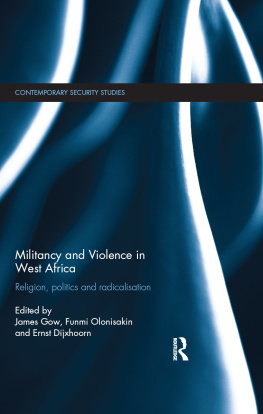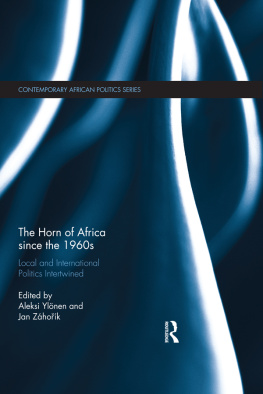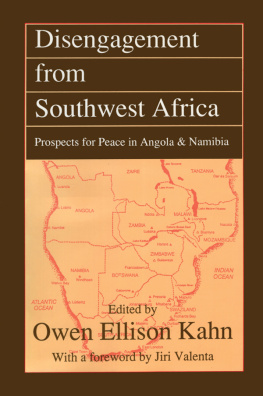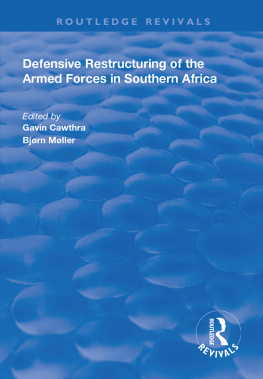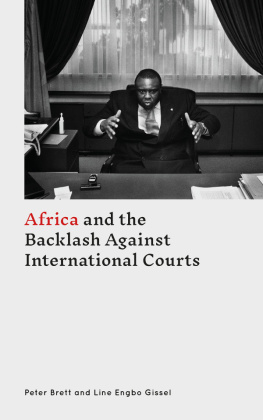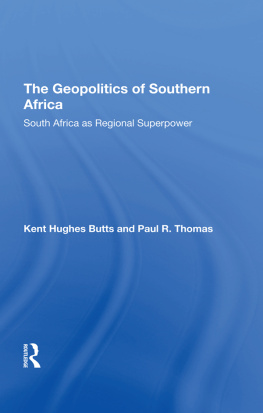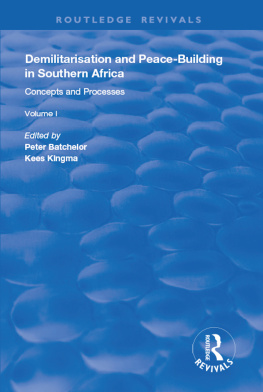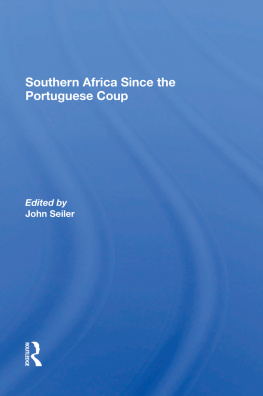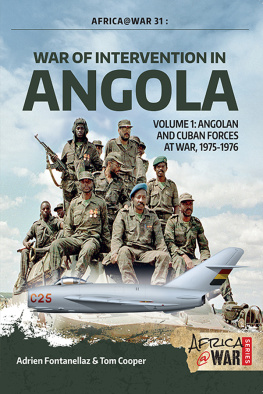NAMIBIA AND SOUTHERN AFRICA
A PUBLICATION OF THE GRADUATE INSTITUTE OF INTERNATIONAL STUDIES, GENEVA
Also published in this series:
The United States and the Politicization of the World Bank
Bartram S. Brown
Trade Negotiations in the OECD
David J. Blair
World Financial Markets after 1992
Hans Genberg and Alexander K. Swoboda
Succession Between International Organizations
Patrick R. Myers
Ten Years of Turbulence
Barbara Barnouin and Yu Changgen
The Islamic Movement in Egypt
Walid Mahmoud Abdelnasser
The International Organization of Hunger
Peter Uvin
First published in 1994 by
Kegan Paul International Ltd
Distributed by
John Wiley & Sons Ltd
Southern Cross Trading Estate
This edition published 2016
by Routledge
2 Park Square, Milton Park, Abingdon, Oxon OX14 4RN
711 Third Avenue, New York, NY 10017, USA
Routledge is an imprint of the Taylor & Francis Group, an informa business
The Graduate Institute of International Studies 1994
All rights reserved. No part of this book may be reprinted or reproduced or utilized in any form or by any electronic, mechanical or other means, now known or hereafter invented, including photocopying and recording, or in any information storage or retrieval system, without permission in writing from the publishers.
British Libary Cataloguing in Publication Data
Dreyer, Ronald
Namibia and Southern Africa: Regional
Dynamics of Decolonization, 1945-90.
(Publication of the Graduate Institute
of International Studies, Geneva)
I. Title II. Series
968.8103
ISBN 0-7103-0471-4
Library of Congress Cataloging-in-Publication Data
Namibia and southern Africa: regional dynamics of
decolonization 1945-1990. Ronald Dreyer
300pp 21cm
Includes bibliographical references and index
ISBN 0 7103 0471 4
1. Namibia-politics and government 1945-1990.
2. Namibia-Relations-Africa, Southern
3. Africa, Southern-Relations-Namibia. I. Title.
DT1648 074 1993
968.810 dc20 93-14190
CIP
ISBN 13: 978-0-71030-471-1 (hbk)
The idea for examining the regional dynamics of Namibia's decolonization arose in early 1985 as a result of my ongoing interest in southwestern Africa since I had witnessed the first South African invasion of Angola in 1975/76 as a delegate of the International Committee of the Red Cross. The research was undertaken as part of a post-doctoral project supported by the Swiss National Science Foundation. This enabled me to conduct extensive research in the region, notably in the Frontline states.
Extremely helpful exchanges of ideas with colleagues working at the United Nations Institute for Namibia in Lusaka, at the University of Zimbabwe and the Centro de Estudos Africanos in Maputo enabled me to formulate the hypotheses which are pertinent for the understanding of Namibia's decolonization from a regional vantage point. They were followed by extensive research in the region's archives and libraries, thus supplementing preliminary research carried out in Geneva, England and Portugal. Moreover, Frontline state diplomats and members of southern African liberation movements gave me invaluable insights into the sometimes complex relationships between liberation movements on one hand, and between SWAPO and the Frontline states on the other. Their openness has been greatly appreciated, and I thank all the individuals who have thus contributed to the successful conclusion of the research.


